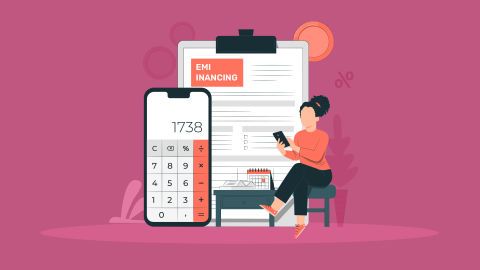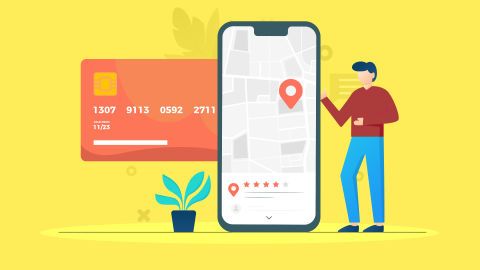Today digitisation is the norm and makes banking and financial services more accessible and convenient. A prime example is waiting in queues while filling out a service application or carrying around documentation folders. Thankfully, online provisions have dealt with the issue and with the introduction of e-KYC, you can now furnish documentation easily. Aadhaar-based e-KYC makes authentication simple as it is as valid as a photocopy of your Aadhaar Card.
To know more about e-KYC and for a detailed understanding of e-KYC registration, read on.
What is e-KYC?
Know Your Customer (KYC) is a process by which a service provider, either government or private, verifies your identity and other particulars linked to you using documentation such as your Aadhaar card.
The process is similar in the case of eKYC, meaning that here, authentication is carried via an electronic mode. In other words, eKYC is simply the process of carrying out verification digitally without the need for physical documentation.
What is the e-KYC process?
The e-KYC registration process is straightforward. As a consumer, you are required to provide your Aadhaar number and consent to the service provider to access your data. The provider then accesses the online UIDAI database and verifies your identity, address and other demographic details.
What is the eligibility criteria for the EKYC process?
To partake in e-KYC verification, you must have a registered Aadhaar card and a linked mobile number. Every resident Indian is entitled to an Aadhaar card. Similarly, NRIs and foreigners who have lived in India for at least 182 days in the 12 months preceding the date of enrolment for Aadhaar can also obtain a card. After having met these basic criteria, you qualify for an Aadhaar and e-KYC.
What is the list of documents required for e-KYC?
Since e-KYC is a digital verification of your data; there’s no need to submit any additional identity proof or address proof documentation. An e-KYC allows you to fulfil the necessary ‘Know Your Customer’ procedure remotely. However, depending on the service you’re signing up for, you may be required to submit recent passport-sized photographs.
Now that you know the e-KYC meaning and its provisions, on the whole, take a look at the answers to a few commonly asked questions for more insight.
Check Also: Documents Required for Insta EMI Card
Frequently asked questions on e-KYC
What is the use of e-KYC?
As mentioned earlier, many services can be availed using e-KYC. Online applications for financial assistance are prime examples of instances in which this verification protocol can be used. As per RBI guidelines, banks can accept e-KYC, meaning that you can open an account in a matter of minutes.
What is the difference between e-KYC and e-Sign?
Submitting e-KYC is the act of having your details verified by a service provider digitally. e-Sign is an electronic signature that allows you to sign documents based on your Aadhaar data digitally.
What is Aadhaar e-KYC?
Aadhaar e-KYC is a digital approach to prove your identity and address to service providers in India. Here, you are required to submit your Aadhaar number and consent to the provider accessing your data. You can also submit Aadhaar offline XML to private service providers as the supreme court has disallowed the use of e-KYC by such providers.
What is e-KYC OTP?
During Aadhaar-based e-KYC verification, an OTP is sent to you by UIDAI for authentication purposes. This is sent on your registered mobile number and you will get it once you click on ‘generate OTP’.
Electronic know your Client or e-KYC is the way of resident authentication used by an organisation like banks. Aadhaar allows the residents to submit it as a document verifying your identity and other particulars linked to you using documentation such as your Aadhaar Card.
e-KYC is the process of resident authentication used by banks for their customers. Learn more about e-KYC meaning, guidelines and registration process.
Other products and services on easy EMI








